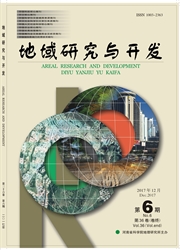

 中文摘要:
中文摘要:
转型期,中国城市住宅供给日益多元化,城市居民的个体需求因素对住房市场的影响不断加深。从居民自然属性、经济属性、社会属性等层面提出对住宅区位选择影响的理论假设。以成都市为例,通过深度访谈方法获取原始资料,并提取居民住区选择的影响因子,完成定量调查表,对所提出的相关假设和模型进行检验。研究结果表明:转型期居民属性因素通过通勤、生活条件、社会关系及物质环境、人文环境等区位取向深刻地影响了中国城市居民的住宅区位选择,并呈现出城市社会各阶层住宅区位选择的趋同化趋势。
 英文摘要:
英文摘要:
In the transition period,the supply of housing is increasingly diversified in China and the influence on the housing market by the individual needs of urban residents is on continues to deepen. First of all,proposed three interrelated theoretical assumptions of that personality required on the impact of the choice of residential location from residents' natural attributes,economic attributes and social attributes. Then obtain the raw data through depth interviews in Chengdu and extract residents of settlements selected factor from the data and completed a quantitative questionnaire. After that,test the underlying assumptions and model with the questionnaire. Empirical results show that residents' individual needs factors profoundly affected the housing location choice of Chinese urban residents by employment,living conditions,social relations and the environment,living conditions,human environment and other regional orientation. There is also the trend of convergence of housing location choice at all strata of the urban social.
 同期刊论文项目
同期刊论文项目
 同项目期刊论文
同项目期刊论文
 Social and cultural factors that influence residential location choice ofurban senior citizens in Ch
Social and cultural factors that influence residential location choice ofurban senior citizens in Ch Assessment of human impacts on vegetation in built-up areas in China based on AVHRR, MODIS and DMSP_
Assessment of human impacts on vegetation in built-up areas in China based on AVHRR, MODIS and DMSP_ 期刊信息
期刊信息
